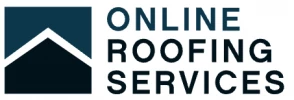Late updated: 19 Oct 2024 14:10
Written by: Oliver Bennett
Modern Roof Design Trends For UK Homes In 2024: A Guide to Contemporary Styles
As we step into 2024, the world is witnessing a fascinating evolution in modern roof design trends for UK homes. Homeowners are increasingly embracing innovative approaches that blend aesthetics with functionality, ensuring that their homes not only stand out but also meet practical needs. Eco-friendly and energy-efficient roofing solutions are at the forefront, reflecting a growing consciousness about environmental impact and sustainability.
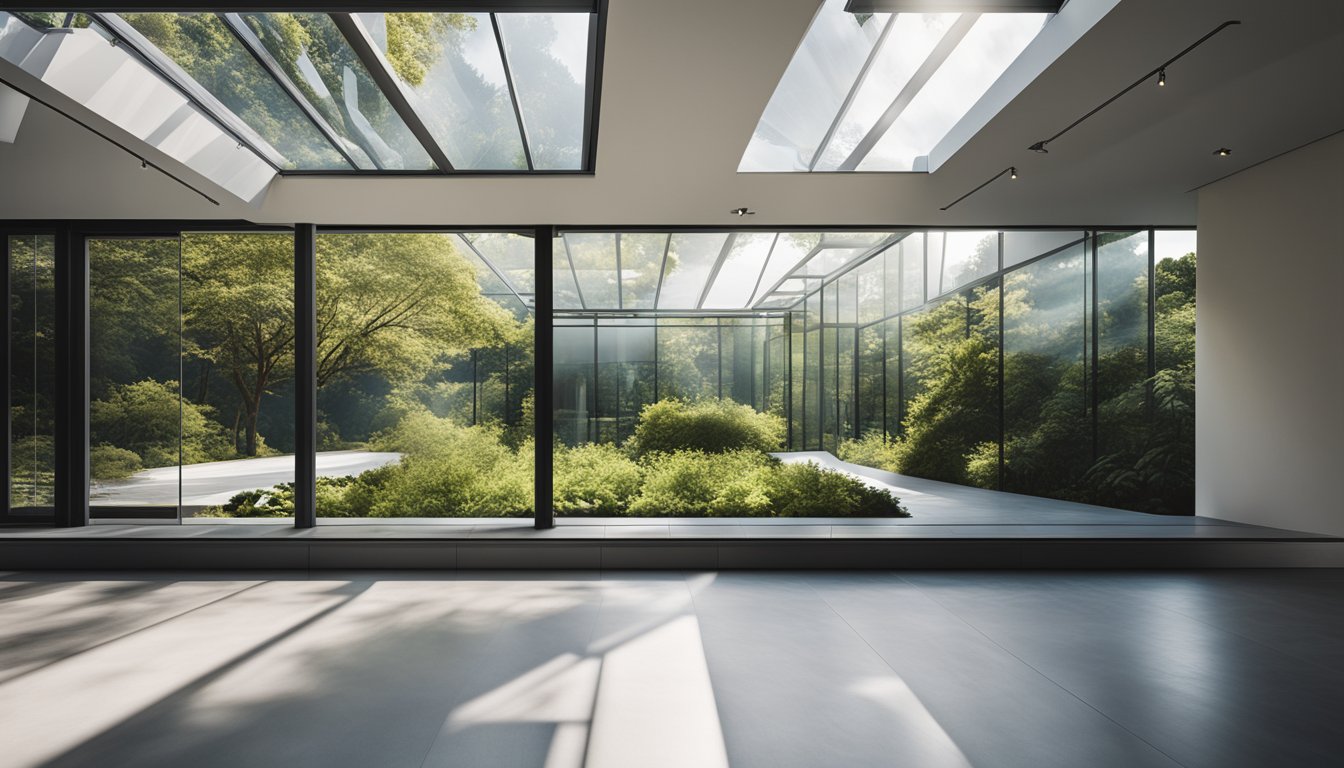
With a keen eye on the latest architectural advances, we can see a shift towards materials that offer durability and reduced environmental footprint. Metal and composite roofs are gaining traction, providing both longevity and a sleek appearance. As designers and builders prioritise sustainability, roofs that incorporate solar technology and green spaces are becoming more prevalent, indicating a broader trend towards eco-conscious living.
Key Takeaways
- Modern roofs blend style with energy efficiency.
- Innovative materials promote sustainability in design.
- Eco-friendly roofs lead trends with lower environmental impact.
Innovative Materials and Techniques
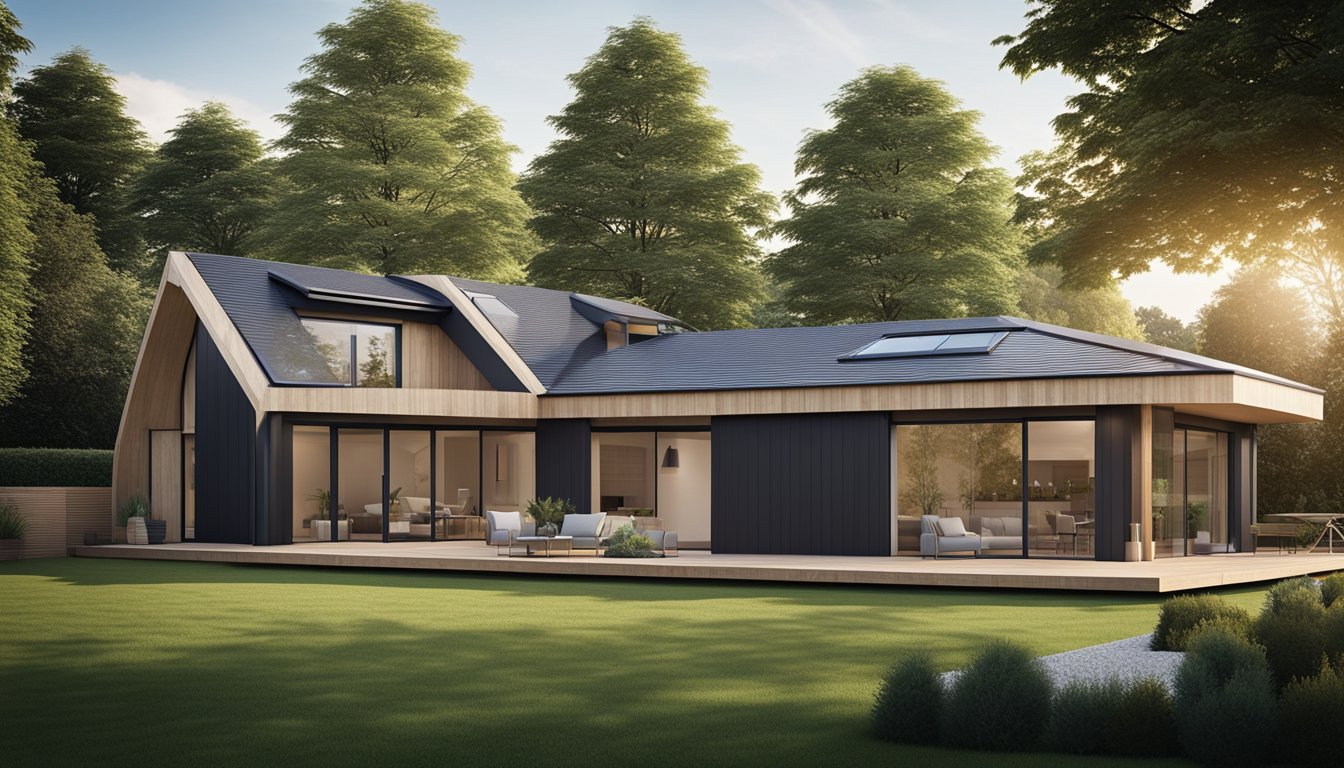
In 2024, the UK roofing industry is witnessing significant advancements in materials and techniques that emphasise sustainability, durability, and technological integration. These trends cater to the growing demand for environmentally conscious and efficient homes.
Advancements in Roofing Materials
The roofing landscape is evolving with the introduction of materials that offer both aesthetic appeal and long-lasting durability. Slate roofs have become more accessible thanks to modern installation methods and improved materials. They offer a timeless look combined with enhanced resilience against harsh weather.
We also see a shift towards metal roofs, praised for their longevity and sleek appearance. Building codes increasingly favour metal for its fire resistance and lightweight properties. This shift aligns with current aesthetic preferences and the push for eco-friendly solutions.
Another noteworthy development is in asphalt shingles. While traditionally popular, new variants focus on improved weather resistance and lower maintenance needs. These innovations underscore a commitment to sustainable roofing that meets both aesthetic and environmental standards.
Smart Roofs and Home Automation
Smart roofs represent a fusion of roofing with home automation technologies. These innovative solutions are equipped with features like real-time condition monitoring, significantly contributing to improved energy efficiency. By integrating solar panels or solar shingles, these roofs not only optimise energy use but can also supply surplus energy back to the grid.
Advancements in smart roofing focus on sustainable roofing options that maximise efficiency. Homeowners can remotely manage their roof’s functionality, such as temperature control and humidity levels, leading to better home environment management.
Smart roofs align with the broader trend of home automation, designed to respond to changing weather conditions and optimise energy consumption seamlessly. This integration ensures that homes are not only efficient but also forward-thinking in embracing the latest in technology and sustainability.
Sustainable Practices and Designs
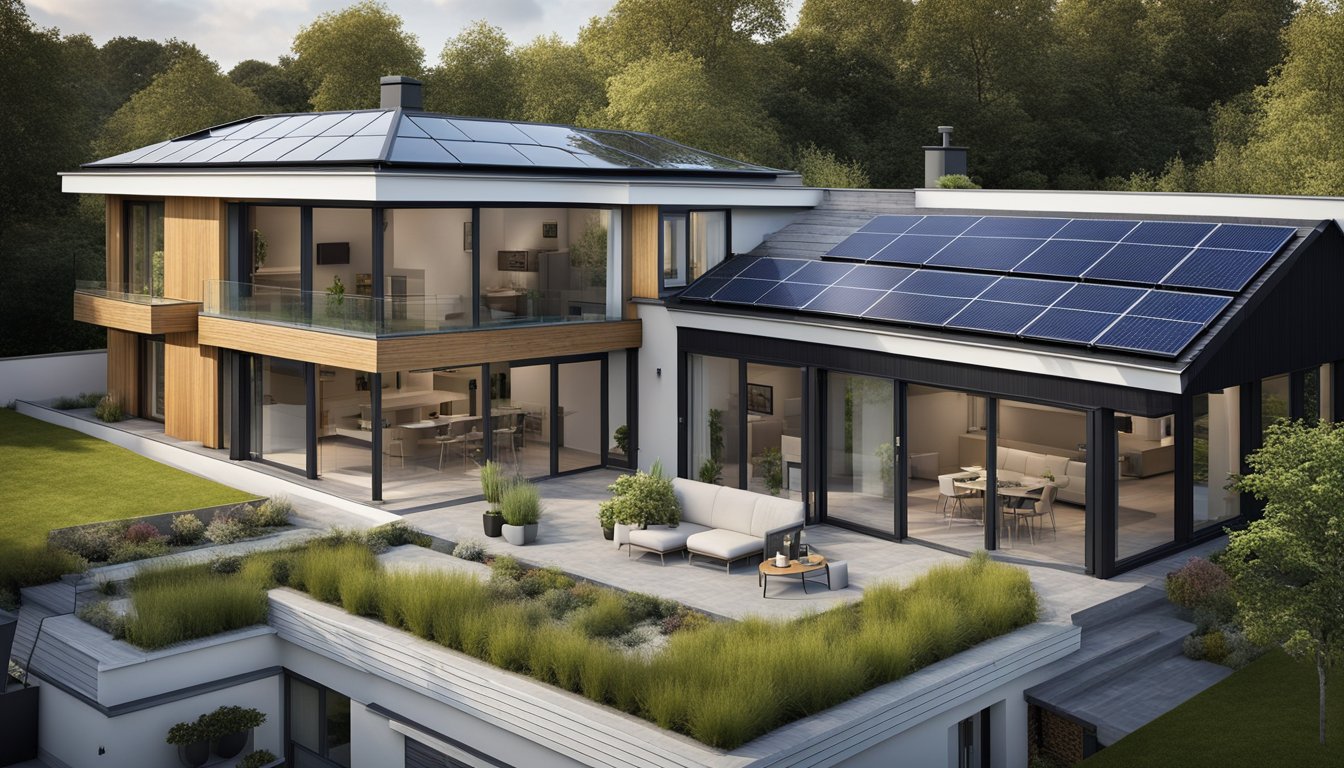
Modern roof designs in the UK are embracing sustainability by incorporating renewable energy options like solar panels, transforming urban landscapes with green rooftops, and improving energy efficiency through innovative materials. These advancements not only decrease environmental impact but also enhance curb appeal and functionality.
Solar Solutions and Renewable Energy
In 2024, solar roofs are a prominent choice for those seeking renewable energy. By integrating solar panels directly into the roofing materials, homes can generate electricity while maintaining an attractive aesthetic. Metal roofing, popular for its durability, now often includes these built-in solar solutions.
We believe this approach optimises both energy efficiency and curb appeal. Homeowners are drawn to the long-term savings on energy bills, alongside reducing their carbon footprint. The integration of solar tiles allows for a seamless design, ensuring the roof remains stylish without sacrificing functionality.
Green Spaces and Rooftop Gardens
Green roofs are increasingly being used to incorporate urban greenery, offering numerous benefits including better insulation and biodiversity enhancement. These eco-friendly roofing solutions convert spaces into rooftop gardens, creating serene spots in urban settings.
These gardens provide insulation, reducing heating and cooling demands, which significantly lowers energy consumption. With the integration of native plant species, they support local wildlife and improve air quality. We notice how these green spaces add value to properties, becoming a sought-after feature in dense urban areas. This approach to design aligns beautifully with our sustainable goals.
Cool Roofs and Energy Efficient Designs
Cool roofs are designed to reflect more sunlight and absorb less heat compared to standard roofs. This characteristic makes them an effective solution for improving energy efficiency. Using materials like reflective tiles and specially coated membranes, these roofs lower cooling demands on homes.
Incorporating cool roofing techniques helps reduce the urban heat island effect prevalent in many UK cities. We find this not only lessens the environmental impact but also leads to substantial cost savings on air conditioning. Homeowners are drawn to the combination of energy efficiency and the reduction in cooling-related expenses, making cool roofs a compelling choice for modern sustainable homes.
Frequently Asked Questions
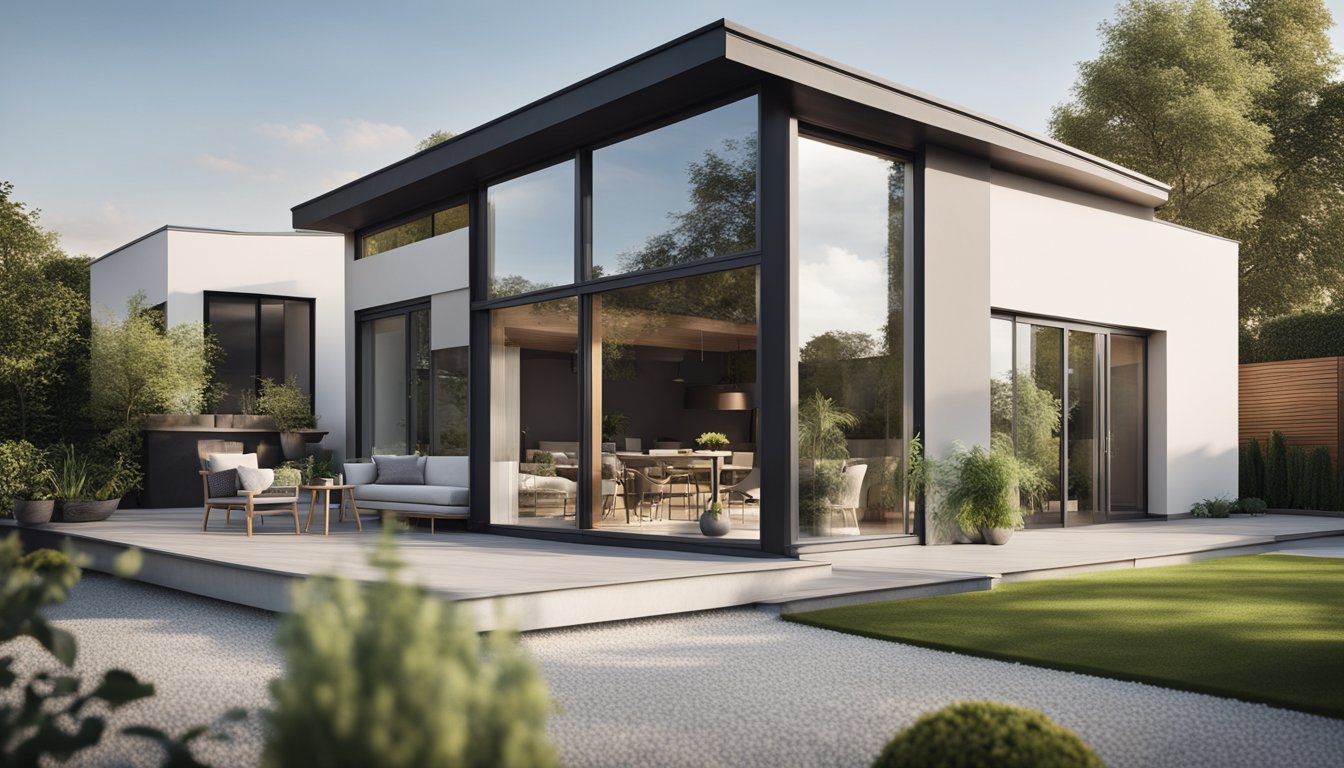
In 2024, the UK roofing scene is being transformed by innovative shapes, sustainable materials, and cutting-edge technology. Homeowners are integrating eco-friendly designs and exploring new colour palettes while insulation and smart tech play pivotal roles.
What are the emerging trends in roof shapes for contemporary UK homes in 2024?
We're seeing a surge in versatile flat roofs, which are used for green spaces and maximising rooftop utility. This trend is driven by a desire for urban green solutions and the need to make the most of every inch of space.
Which materials have become popular for roofing in the UK and why?
Eco-friendly and durable materials like metal and recycled composites are gaining traction. These materials offer significant benefits in terms of longevity and sustainability, catering to the growing demand for responsible building practices.
How are UK homeowners incorporating eco-friendly elements into their roof designs?
Many UK homeowners are adopting green roofs and incorporating solar panels. Green roofs improve air quality and provide natural insulation, whereas solar panels offer energy efficiency. These elements support the shift towards a more sustainable and energy-conscious way of living.
In light of 2024 trends, what are the new colour preferences for UK home roofing?
Neutral and earthy tones are trending, reflecting a move towards understated elegance. These colours blend seamlessly with the environment and add a timeless appeal to modern architecture.
What technological advancements are being applied to modern UK roof designs?
Smart technologies include automated ventilation systems and solar panelling that integrates seamlessly with app-controlled energy management. These innovations enhance comfort and efficiency, transforming how we interact with our home environments.
How is insulation playing a role in the latest UK roofing trends and designs?
Advanced insulation materials are crucial for reducing energy costs and improving comfort. Techniques that minimise thermal bridging and enhance airtightness are particularly popular, highlighting the commitment to energy efficiency in modern design.
